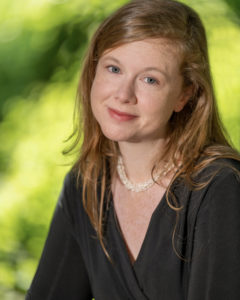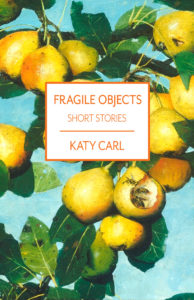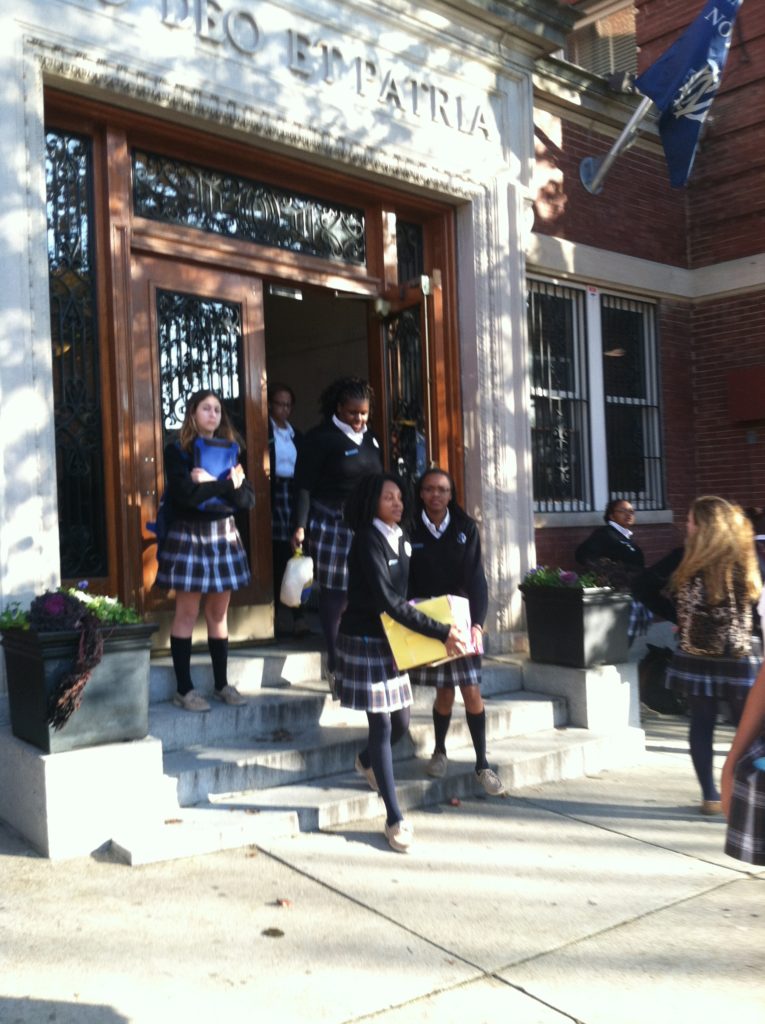“When you’re writing,” the Catholic short story writer Andre Dubus once said, “you love somebody as God does.” His comment wasn’t meant to imply that writers of fiction are divine, nor all-knowing. Rather, Dubus believed that authentic, meaningful fiction could only be created by writers who loved their characters — in all of their follies, paradoxes, and sins.
Katy Carl loves her characters. In “Fragile Objects” (Wiseblood Books, $13), her debut story collection, we are introduced to imperfect yet deeply endearing and believable characters: a grown son struggling to placate his aging mother. A good-intentioned but overzealous convert, “a former fan of Fight Club,” who had been reading the Desert Fathers but needed a more prosaic and contemporary touch of faith. An anxious mother who worries that her move to the suburbs might temper her professional ambition, despite its benefits for her family.
Carl is the author of “As Earth Without Water” (Wiseblood Books, $16), a well-received novel from 2021, and the editor of “Dappled Things,” a Catholic quarterly literary magazine. The stories in “Fragile Objects” benefit from her editorial sensibility. They are neither trite nor slight. They are clearly the work of a Catholic writer, but they don’t read like devotional tracts.
One of Carl’s great strengths as a writer of fiction is her ability to help us be more attentive to the complexities of the world through careful description. In the book’s title story, placed first in the collection, a boy nicknamed Bub is visiting his grandmother with his father. Carl’s description of her house is so sharp and believable: “Bronze baby shoes, as if just dropped from little feet, rested beside plaster hands that seemed to pray. Demitasse cups yearned open next to porcelain roses that fooled you into thinking they bloomed. Sprays of dried cotton bolls bristled from crystal bud vases.”
Bub’s father must tread carefully with his aging mother, who appears to have descended into paranoia. The boy is understandably bored; “he sat studying the clementine paisley pattern of the tablecloth and debating within himself whether to trace the teardrops with a fingertip might invite reproof.” Yet Carl effectively pivots from the passive nature of the visit to a surprising and powerful ending to the story, a demonstration about how unresolved anger can have inevitable consequences.

As a first story, “Fragile Objects” demonstrates that Carl is willing to take risks and jolt her reader. Flannery O’Connor would be proud.
The story “Hail Thee, Festival” begins with a talky character’s monologue; a meandering spiel about a school fundraising festival. The technique works well, as the story pivots to a first-person narrator who has moved with her family (her husband, Kichiro, and their daughter, Ena) from the city to the suburbs. Like many parents who’ve made similar life changes, she’s worried: “Surely part-time accountancy in the suburbs is a step down in the world, mere counting up of other folks’ earnings and dividing out Caesar’s share. Would it even be worth going back, back in truth to the city, to what I am really good at? Could I still be good at it now?”
Carl aptly captures the mental gymnastics we perform when reflecting on such decisions. “Here, things are better,” the narrator hopes. “Here, in a smaller, safer city two hours south, he doesn’t have to be left out nearly so much anymore. His office and mine lie within the same twenty-minute travel radius as do the house, school, church, pediatrician, dentist, orthodontist, grocery, pharmacy, and, yes, family therapist, and we are happier. We are. Happier?”
The contrast comes into full view once the fundraiser actually begins — the volunteer-run carnivals the likes of which Catholic school parents recognize. Carl writes poetically of mundane moments: “The low light yawns in long bars between the poles of tents and the flailing limbs of stubborn grade-school-aged game players still unwilling to pack it in.” Yet an incident that occurs at the festival increases the narrator’s worry about her decisions.
Such realistic concerns anchor “Fragile Objects.” The collection ends with “Awards Day,” possibly the best story of the book, a tight, profluent tale about a black high school student named Diamond, whose mother’s car accident led her to being driven to school by two white students, Helen and Emilia Delacroix. During Lent that year, Mama “had suffered a seizure behind the wheel. The car rolled out of control and crashed into the left-hand side of the pair of metal handrails that ascended the school’s front steps.”

The Delacroix family offered to help, but as Carl illustrates, generosity is not always simple. Martine Delacroix makes the offer, with an awkward caveat that Diamond might come to help babysit their youngest: “we’d be grateful, but we wouldn’t expect.” It is a delicate moment, and Carl renders it well: “When Mrs. Delacroix had said all this to Diamond’s father after Mass on the pebbled front steps of Little Flower, hedged on both sides by the rose garden that faced the decayed restaurants and new brick bank branches across Government Street, Diamond had known from the angle of his brow and the set of his full lips both that he wanted to refuse and that he did not dare.”
In “Awards Day,” Carl perfectly captures the inherent tensions of Catholic schooling, and offers a dynamic view of race and class. “Sometimes it seemed their whole family life had been nothing but saving and saving for Diamond’s education,” the narrator explains. “All through her middle-school years they had striven, squeaked by, to keep affording her tuition and to help her stay at the top of her class.... They had taken turns waiting and drinking social cups of coffee and feeling the jitters in shiny, freshly renovated kitchens while someone with a degree explained equations and formulae to their brilliant daughter, every step ensuring she would one day leave them behind.”
Late in the story, Diamond’s father laments about his daughter’s reality: “I wish she didn’t, but she’ll always have to prove herself, prove her worth. We can’t allow one thing to go wrong for her, if we can help it.” His wife’s sarcoidosis requires expensive and extensive treatment — a dramatic turn in the story of their family that ruptures their plans for Diamond. Like so many of Carl’s tales, there are no easy exits and solutions, making for deeply engaging fiction.
Short story collections are often not the first choice for casual readers, who might be more drawn to the singular focus of a novel. But “Fragile Objects” is an excellent choice for reading first-rate Catholic fiction, crafted by a writer who cares about her characters — and her readers.

